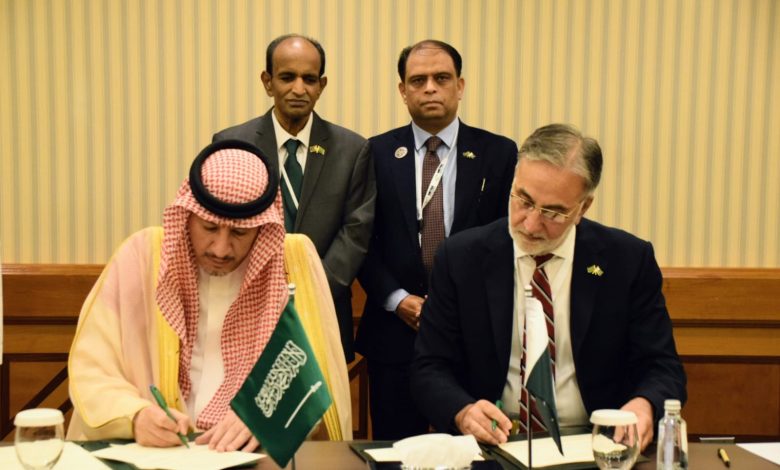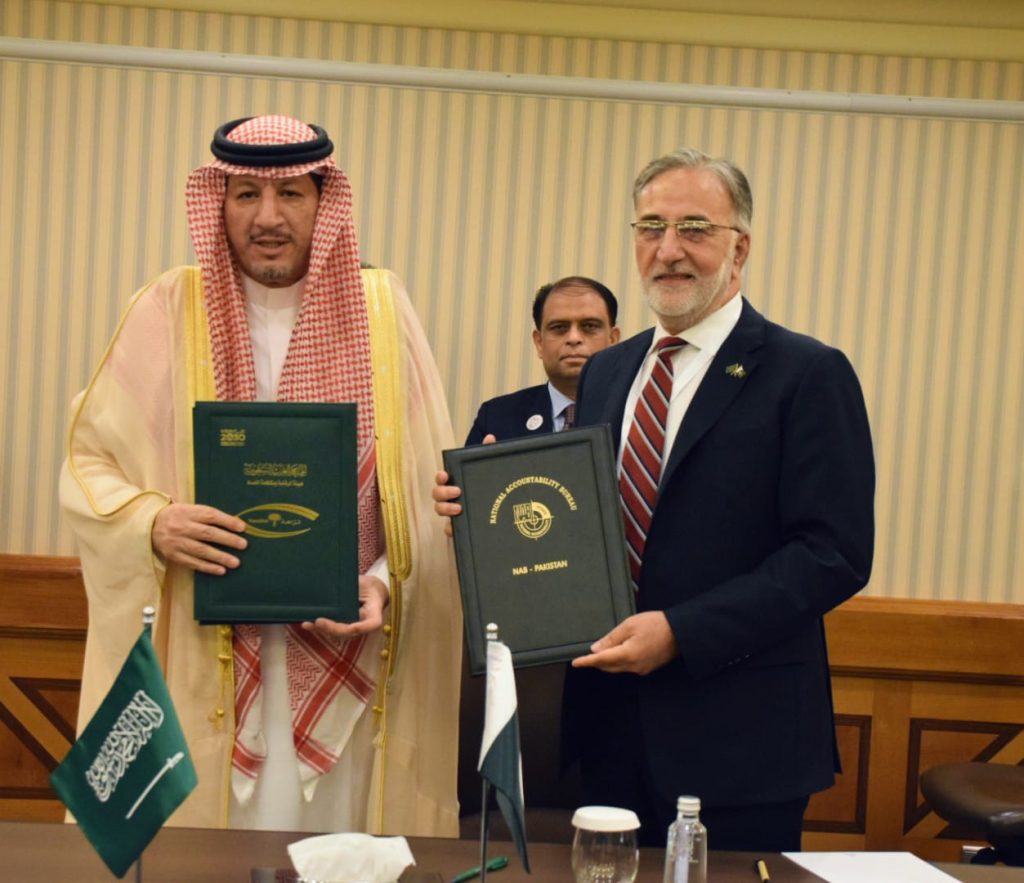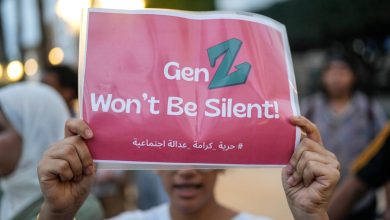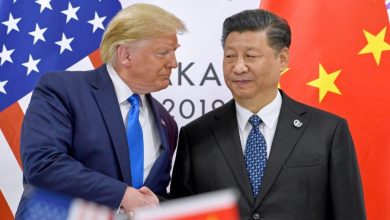
Saudi Arabia and Pakistan signed an agreement to strengthen cooperation in combating corruption and money laundering while facilitating mutual legal assistance, Pakistan’s National Accountability Bureau (NAB) announced on Thursday.
The memorandum of understanding (MoU) was signed by Mazin bin Ibrahim Al-Kahmous, president of Saudi Arabia’s Oversight and Anti-Corruption Authority (Nazaha), and NAB Chairman Nazir Ahmed during the inaugural session of the Asset Recovery Interagency Network for the Middle East and North Africa (MENA) in Jeddah.
Under the agreement, both sides will enhance collaboration through information exchange related to corruption, money laundering, and asset tracing. They will also cooperate on recovering proceeds of crime.
“The MoU envisions joint work on mutual legal assistance and technical support for preparing MLA requests through diplomatic channels,” NAB said in a statement.
Al-Kahmous commended NAB’s anti-corruption efforts and its significant achievements, including unprecedented recoveries worth 6.4 trillion Pakistani rupees ($23 billion) in a short period. He also praised Chairman Nazir Ahmed’s address to the MENA ARIN forum, which highlighted global challenges in fighting corruption.
Strengthening Saudi-Pakistani ties
The agreement reflects the deepening cooperation between Riyadh and Islamabad, which recently signed a Strategic Mutual Defense Agreement during Pakistani Prime Minister Shehbaz Sharif’s visit to Saudi Arabia, pledging that both countries would consider any aggression against one an attack on both.
This week, a Saudi business delegation visited Pakistan to explore new investment opportunities in multiple sectors.
NAB chief Ahmed lauded Saudi Arabia’s leadership in driving regional anti-corruption initiatives and praised the Kingdom’s recent defense agreement with Pakistan, calling it a milestone in bilateral relations.
Saudi Arabia and Pakistan share strong religious, cultural, and strategic ties, particularly in defense and trade. The Kingdom hosts over two million Pakistani expatriates, who represent Pakistan’s largest source of foreign remittances.
Saudi Arabia has also extended vital economic support to Pakistan during its financial challenges, including deferred oil payments, external financing, and assistance with International Monetary Fund programs.






